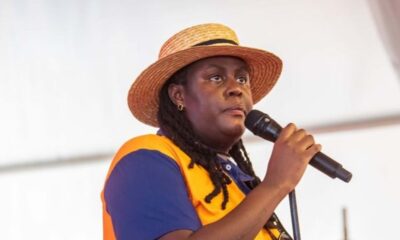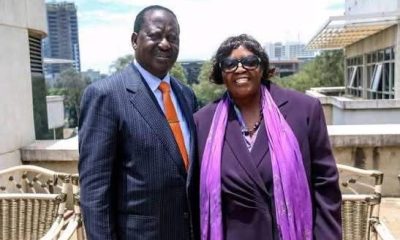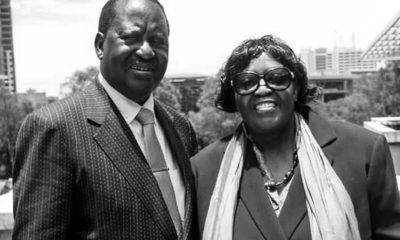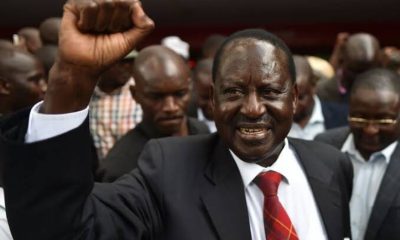Politics
Is Uhuru Kenyatta the Architect of Broad-Based Govt? Jubilee Tells Raila to Own His Choices
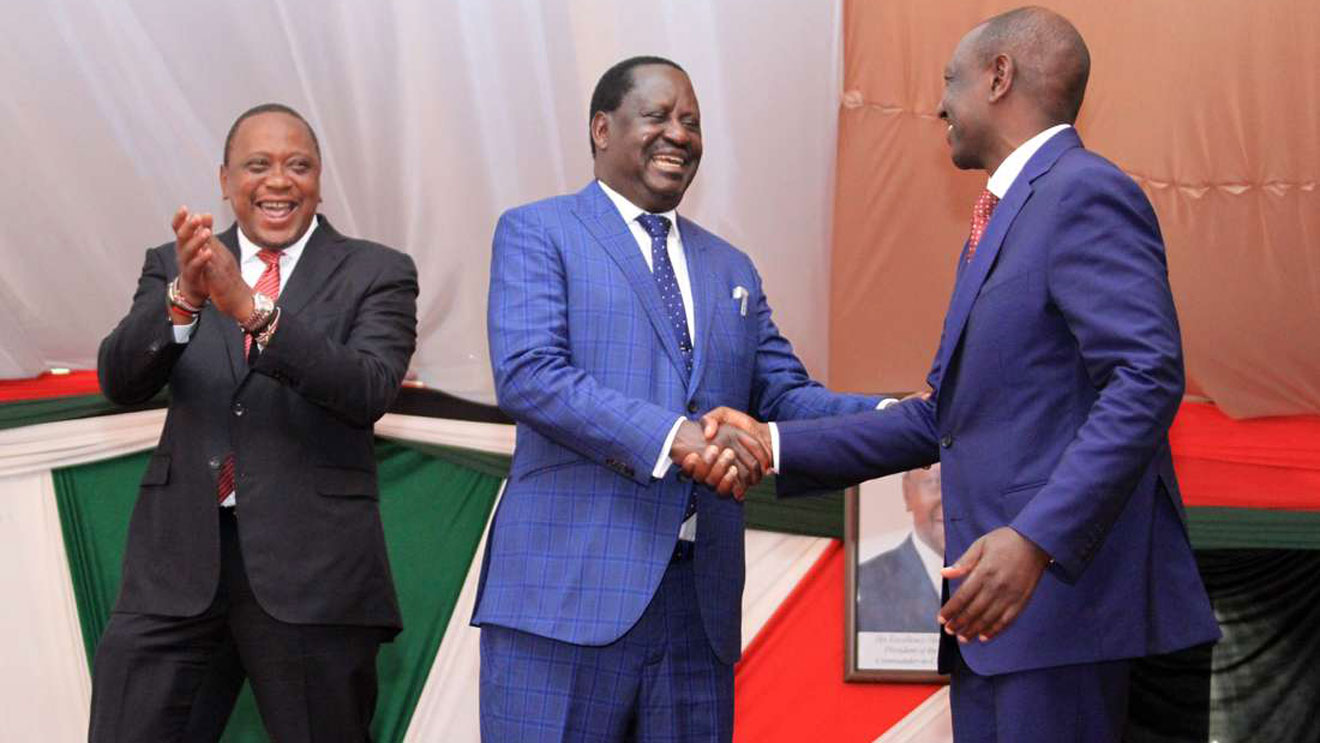
In the latest twist in Kenya’s heated political chessboard, Raila Odinga’s claim that former President Uhuru Kenyatta brokered a deal between him and President William Ruto has sparked uproar.
The Jubilee Party has firmly distanced itself from Odinga’s assertions, slamming them as false and politically motivated.
As the narrative of a broad-based government continues to unfold, questions loom large—who really engineered this grand coalition? Is Uhuru truly the architect of the so-called unity deal, or is he being dragged into someone else’s mess?
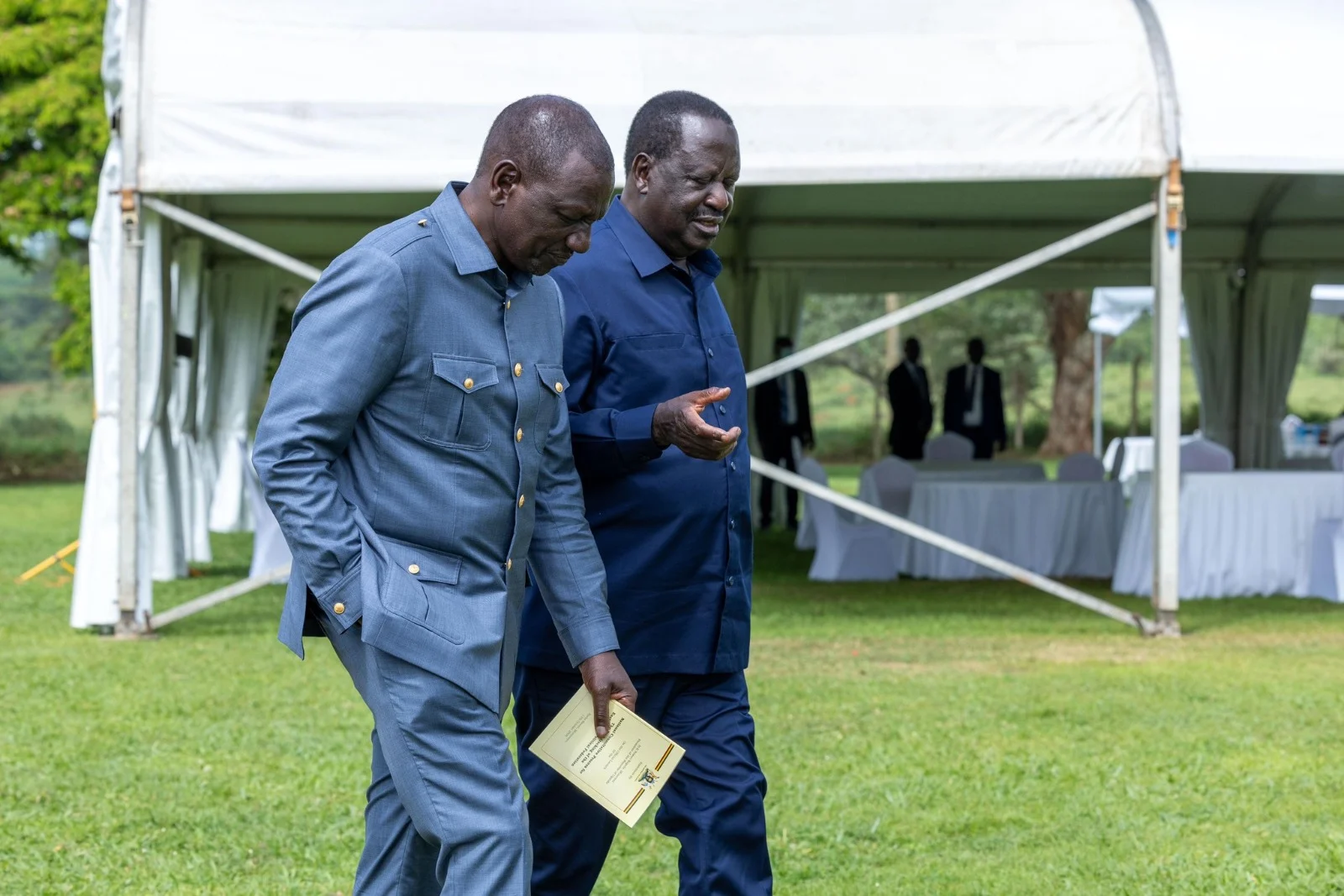
The broad-based government project remains controversial. What was meant to be a bridge toward political calm is now a tool for political smears. It may help Ruto survive in the short term, but it leaves the opposition fractured and confused. [Photo: Courtesy]
Jubilee Fires Back Against Raila’s Broad-Based Govt Claim
Jubilee Party Secretary General Jeremiah Kioni didn’t mince words during a fiery Citizen Radio interview on Monday. He dismissed Odinga’s remarks as a desperate attempt to paint Uhuru Kenyatta and the Jubilee Party in bad light.
Kioni firmly stated that neither Uhuru nor the Jubilee Party had anything to do with the formation of President Ruto’s broad-based government, a new political arrangement bringing together perceived technocrats from both government and opposition.
“We do not agree with the narrative that Uhuru initiated the idea of ODM experts joining the government,” Kioni said. “That was their own making. It is not right to cheapen such a significant issue.”
He further slammed the ODM leader for dragging Uhuru’s name into a political war that had nothing to do with the former President, branding the move as both unfair and misleading. Kioni also accused Raila of trying to escape accountability for his party’s controversial alignment with the Kenya Kwanza government.
“If Odinga wanted to work with President Ruto, that’s his decision. But don’t involve Uhuru Kenyatta or the Jubilee Party. Don’t blame us for joining the oppressor,” Kioni fired.
According to Kioni, Jubilee is focused on rebuilding its structures and playing a constructive role in governance, not indulging in political blame games. “We are working to strengthen our party—not chase shadows,” he said.
Raila Claims Uhuru Brokered Dialogue with Ruto
Odinga, in an exclusive interview with NTV on Sunday, had dropped the political bombshell. Speaking on record, the ODM chief claimed that it was Uhuru Kenyatta who nudged him toward initiating dialogue with President Ruto at the height of anti-government protests in 2023.
“At that time, former President Uhuru Kenyatta called me from the United States. He told me, ‘I know you don’t want to talk to Ruto, but for the good of the country, try to find a way,’” Raila stated.
Odinga explained that the call came when the country was on edge, with protests against the finance bill threatening to spiral out of control. He claimed Ruto himself later reached out, and they agreed to begin talks for the sake of national unity.
But while Odinga maintains his ODM party only contributed “experts” to the cabinet to address national crises, critics argue the move blurs the line between opposition and government—raising eyebrows about loyalty, accountability, and the democratic process.
Political Fallout Over Broad-Based Govt Narrative
The political fallout from the broad-based government claims is already visible. Raila’s statements appear to have reignited tensions between former allies and rivals, dragging Uhuru Kenyatta into a debate he has so far avoided.
Analysts say Odinga’s comments risk weakening opposition integrity while giving the Kenya Kwanza regime political cover. ODM’s decision to “send experts” into Ruto’s administration has been criticized as a backdoor alliance that contradicts their opposition mandate.
Jeremiah Kioni’s response signals a wider rift between ODM and other Azimio coalition partners. While Jubilee seeks to reassert its independence and commitment to democratic accountability, ODM is now walking a tightrope between collaboration and co-optation.
Critics argue that by involving individuals in the current administration, ODM has undermined its ability to effectively criticize the government. Jubilee’s rebuke serves as a warning: opposition parties must not blur lines so easily.
More broadly, questions continue to swirl about the real architect of the broad-based government. Was it a genuine attempt at national healing? Or was it a strategic co-optation of the opposition by Ruto’s political machinery—with Uhuru now being scapegoated to deflect backlash?
Who Benefits from the Broad-Based Govt Confusion?
The key question now is, who benefits from the confusion? Raila appears to be hedging his bets—cooperating with Ruto’s administration through proxies while keeping a safe political distance. Meanwhile, President Ruto gains the image of a leader willing to unite the country, even if through tactical alliances.
As for Uhuru Kenyatta, he remains largely silent. But Jubilee’s aggressive rebuttal suggests he wants nothing to do with the chaos. Kioni made it clear that Uhuru’s call to Raila was made in the spirit of national peace—not to broker political positions or influence appointments.
The broad-based government project remains controversial. What was meant to be a bridge toward political calm is now a tool for political smears. It may help Ruto survive in the short term, but it leaves the opposition fractured and confused.
Ultimately, Jubilee’s stance highlights the need for clarity. Either the opposition is working with the government or it is not. Blaming Uhuru for ODM’s choices only muddies the waters further.
As the 2027 race looms, alliances will continue to shift—but voters will remember who stood firm, who wavered, and who blamed the wrong man.
Kenya Insights allows guest blogging, if you want to be published on Kenya’s most authoritative and accurate blog, have an expose, news TIPS, story angles, human interest stories, drop us an email on [email protected] or via Telegram
-

 Grapevine1 week ago
Grapevine1 week agoAlleged Male Lover Claims His Life Is in Danger, Leaks Screenshots and Private Videos Linking SportPesa CEO Ronald Karauri
-

 Lifestyle2 weeks ago
Lifestyle2 weeks agoThe General’s Fall: From Barracks To Bankruptcy As Illness Ravages Karangi’s Memory And Empire
-

 Grapevine5 days ago
Grapevine5 days agoRussian Man’s Secret Sex Recordings Ignite Fury as Questions Mount Over Consent and Easy Pick-Ups in Nairobi
-

 Investigations2 weeks ago
Investigations2 weeks agoEpstein Files: Sultan bin Sulayem Bragged on His Closeness to President Uhuru Then His Firm DP World Controversially Won Port Construction in Kenya, Tanzania
-

 Investigations2 days ago
Investigations2 days agoMulti-Million Dollar Fraud: Three Kenyans Face US Extradition in Massive Cybercrime Conspiracy
-

 Investigations2 weeks ago
Investigations2 weeks agoEpstein’s Girlfriend Ghislaine Maxwell Frequently Visited Kenya As Files Reveal Local Secret Links With The Underage Sex Trafficking Ring
-

 News2 weeks ago
News2 weeks agoState Agency Exposes Five Top Names Linked To Poor Building Approvals In Nairobi, Recommends Dismissal After City Hall Probe
-

 Business1 week ago
Business1 week agoM-Gas Pursues Carbon Credit Billions as Koko Networks Wreckage Exposes Market’s Dark Underbelly



